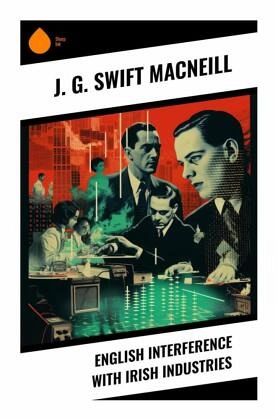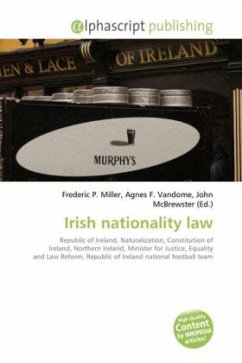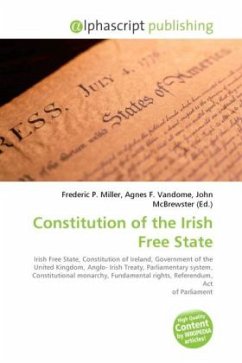
English Interference with Irish Industries
Versandkostenfrei!
Versandfertig in 6-10 Tagen
8,10 €
inkl. MwSt.
Weitere Ausgaben:

PAYBACK Punkte
0 °P sammeln!
In "English Interference with Irish Industries," J. G. Swift MacNeill offers a compelling examination of the socio-economic challenges faced by Ireland due to British policies. Written in a rigorous yet accessible literary style, the text intertwines economic analysis with historical narrative, shedding light on the detrimental impacts of colonial economic strategies on Irish industrial sectors. MacNeill's meticulous research situates this work within the broader context of the Irish nationalist movement, emphasizing the ways in which industrial decline was not merely a question of economics b...
In "English Interference with Irish Industries," J. G. Swift MacNeill offers a compelling examination of the socio-economic challenges faced by Ireland due to British policies. Written in a rigorous yet accessible literary style, the text intertwines economic analysis with historical narrative, shedding light on the detrimental impacts of colonial economic strategies on Irish industrial sectors. MacNeill's meticulous research situates this work within the broader context of the Irish nationalist movement, emphasizing the ways in which industrial decline was not merely a question of economics but deeply intertwined with national identity and autonomy. J. G. Swift MacNeill, a prominent figure in Irish nationalism, utilized his legal and political background to articulate the frustrations of his contemporaries regarding British governance. His active involvement in the Gaelic League and advocacy for cultural revival underscores his commitment to promoting Irish self-sufficiency. Such personal convictions deeply informed his critique of English economic policies, positioning him as a passionate and informed commentator on the intersections of politics and industry. This book is essential reading for anyone interested in Irish history, economics, or colonial studies. MacNeill's analytical insights challenge readers to reconsider the impact of imperialism on local economies and cultures, making it a vital resource for scholars and enthusiasts alike.













